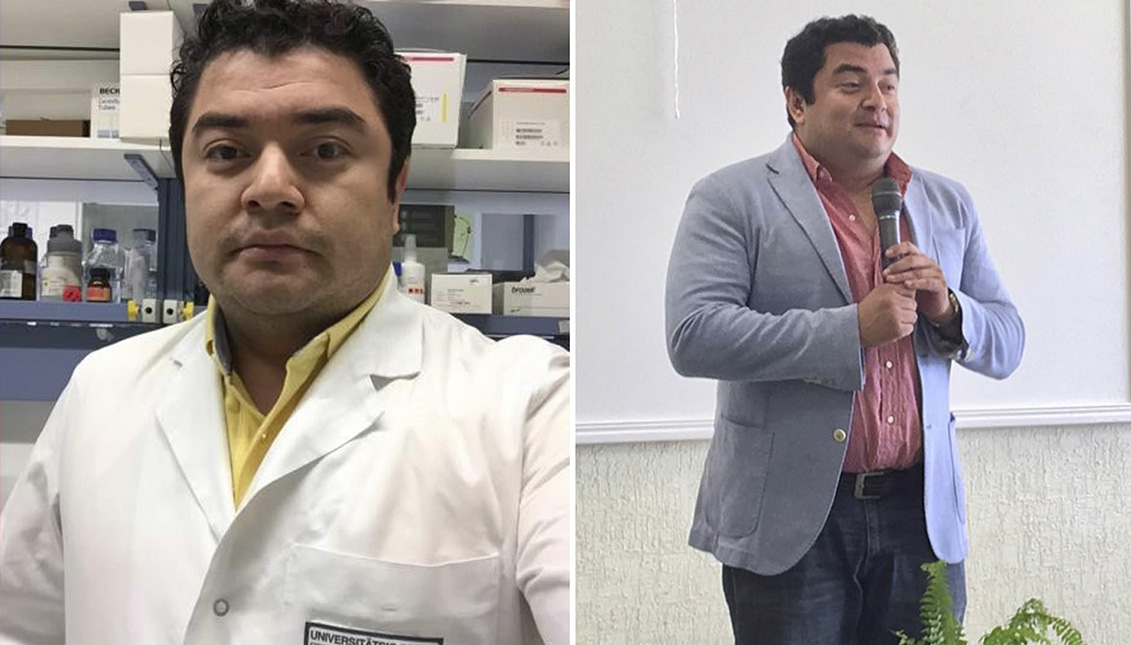
The double role of scientist Hector Cabrera: From spy for the Russian government to hero in Mexico
The Mexican microbiologist accused of working for Russian Intelligence in Miami is considered a benefactor in his hometown. Can someone who saves lives…
An "altruistic" man with "a lot of social conscience." This is how Hazael Matus, mayor of El Espinal, in the Mexican state of Oaxaca, defined one of its most beloved and admired citizens, Dr. Hector Alejandro Cabrera.
The Mexican microbiologist has recently been accused by the United States of spying for Russia in Miami, something that has left his neighbors totally perplexed and some, like Mayor Matus, refuse to believe it.
"He helped people and all this seems strange," Matus said. "We don't know what happened, but I have a feeling that it's a misunderstood or an attack for scientific reasons. He may have discovered something that has upset some people or some business interests," he ventured Wednesday.
Cabrera, who was well known in the Mexican region for his heart treatments and his research on an ointment to cure wounds in diabetics, has been in the spotlight of U.S. authorities since the beginning of the week, and the motive looks little more than the plot of a thriller:
Cabrera was reportedly hired by Russia to find the vehicle of a U.S. government informant in the Miami area and report its location, AP noted. It also said that while this informant had not been identified, he would have been able to convey important details about Russian intelligence operations to the CIA.
U.S. officials said in a statement that Cabrera is leading a double life with a Mexican wife and a Russian wife. They also claimed that he had traveled to the European country in March to process some documents, but was prevented from returning to Germany, which they interpret as part of a Russian maneuver to pressure the Mexican scientist into working for them.
Cabrera also allegedly visited Moscow in May, where his wife's family resides and was approached by a Russian official who, referring to his family situation, told him: "We can help each other."
However, the microbiologist would also testify to the FBI under oath that he and the Russian officer had previously met at other professional events.
But there is more...
The Justice Department claimed to have evidence that this "officer" would have ordered Cabrera to rent a property in Miami, although it did not have his name.
There were two meetings in Moscow and the second, they reported, was when Cabrera was "allegedly" given the information about the vehicle and the mission to obtain its registration number and location by April or May.
RELATED CONTENT
He then traveled to Mexico City with his Mexican wife, who was supposed to take a photograph of the car even though, according to the allegation, the Russian agent had made it clear to him not to do so.
Cabrera was known in his hometown for his cardiac treatments and his drive for scientific research.
The Customs Service detained them at the Miami airport, from where he intended to return to Mexico, last Sunday. Cabrera, says Justice, confessed to everything about the operation.
Accused of conspiracy and acting illegally for a foreign government on U.S. territory, the Mexican faces a pretrial detention trial next Friday and arraignment on March 3.
However, can a man allegedly coerced by Russian officials also be the most beloved hero in his homeland? Did they really threaten him? And, in any case, who is Hector Alejandro Cabrera and to what extent was he allegedly involved in a conspiracy?
An associate professor at Duke University School of Medicine and the National University of Singapore, with doctorates in molecular microbiology and molecular cardiology from Russia and Germany, Mayor Matus described Hector Cabrera as a boy who had excelled at studying abroad.
He stressed that the Oaxacan never forgot El Espinal and its more than 9,000 inhabitants and that he helped organize the local scientific community and rebuild the houses after the two devastating earthquakes in September 2017.
"He may have discovered something that has upset some people or some business interests," ventured the mayor.
Héctor Cabrera had planned to attend some meetings in Mexico as part of a larger project he was involved in, helping to establish research centers in El Espinal and as part of a plan by the López Obrador government to improve infrastructure between the Pacific and the Gulf of Mexico.
The doctor was recruiting Mexican universities and institutions to establish these research centers on seismology, logistics, and medicine in his hometown.











LEAVE A COMMENT:
Join the discussion! Leave a comment.